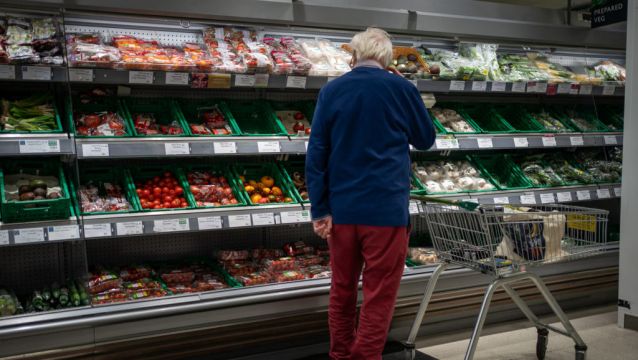The Government still has scope to introduce additional temporary measures to assist people with the rising cost of living, according to the Irish Fiscal Advisory Council.
The council's latest report, titled 'Rising prices and an uneven recovery', states "€2.5 billion of the contingencies set out for 2022 remains unallocated".
While it notes some of these funds may be used to support people fleeing the war in Ukraine, the funds could also be put towards measures to ease the cost of living crisis, particularly for those on lower incomes and "most severely affected by higher prices".
Although the report says the economy "has continued to grow strongly despite global challenges", it adds that higher inflation, due to rising energy costs, has reduced expectations for real economic growth.
"Uncertainty is very high and this has reduced consumer and business confidence.
"The economic recovery from the pandemic, while uneven, has been faster than anticipated in official projections."
Spending challenges
The council highlights that there are "significant medium-term challenges" to public finances, with the Government's 5 per cent spending cap giving "very little room if at all for new policies".
"Demographic change, Sláintecare reforms, costs in transitioning to a low carbon economy and defence spending are likely to be significant," however, the report later notes the Government has "not set out credible plans" for these measures.
Illustrating this point, the council identifies three areas where significant spending has been pledged over the medium-term; reducing greenhouse gas emissions, implementing Sláintecare reforms, and preparing for the costs associated with an ageing population.
On these points, the council says the Government has "not factored in the full costs" of halving the State's greenhouse gas emissions by 2030, has not costed Sláintecare reforms beyond 2022, and has not responded to the Pensions Commissions' recommendations regarding shortfalls in the pension system.
Overall, the budgetary outlook remains positive, with the budget balance set to reach a surplus in 2023, while the government debt ratio is also projected to fall significantly in the coming years.
In the meantime, the war in Ukraine and high inflation are the immediate risks to the public finances, with the council advising that the Government sticks to its 5 per cent spending rule but while also gradually unwinding its over-reliance on corporation tax.
"Tax receipts have been boosted by a swift recovery and strong taxes, in part thanks to the massive support provided during the pandemic, but the Government now faces difficult choices," IFAC chairperson Sebastian Barnes said.
"Supporting poorer households, keeping a lid on further price increases, and implementing other policies will be complicated in the short run.
"At the same time, more clarity is needed on how the Government will deliver on its longer term goals while ensuring prudent management of the public finances," Mr Barnes added.







